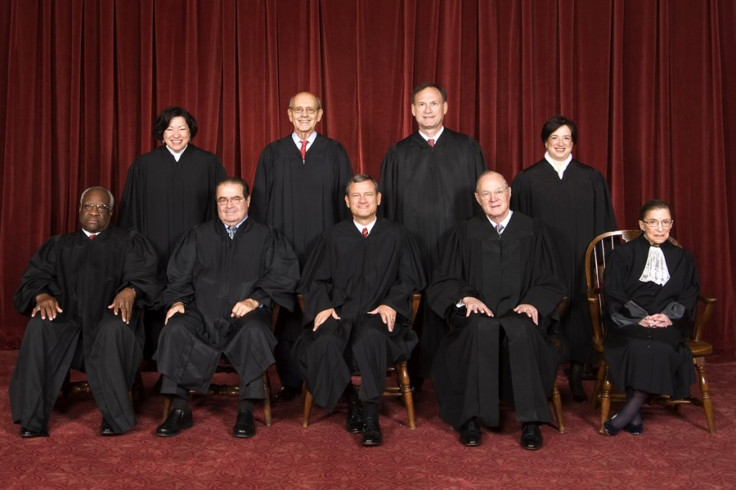Former Bush AG Defends Kagan, Thomas Amid Calls for Recusal

Michael B. Mukasey, an attorney general under President George W. Bush, Monday said the full U.S. Supreme Court should hear the case over the Affordable Care Act, defending Justices Elena Kagan and Clarence Thomas from calls that they recuse themselves.
In an op-ed for The Wall Street Journal called The ObamaCare Recusal Nonsense, Mukasey criticized the concerns political groups have raised about Kagan and Thomas' ability to fairly hear the case on the health care reform law.
Upon even a cursory examination of the facts it is clear that neither justice should step aside, said Mukasey, a former federal judge in Manhattan's Southern District of New York who served as attorney general from 2007 to 2009.
For Kagan, conservative groups and Republican lawmakers want her off the case because of her time as the Obama administration's solicitor general, the White House's chief appeals lawyer.
Though emails from her office suggest she was pleased that the health-care bill had passed, nothing has surfaced to suggest she had anything to do with preparing a legal defense for the law. Emails have also shown that she assigned her top deputy, Neal Katyal, to handle the office's legal work on the Affordable Care Act.
Thomas, meanwhile, has been dogged for failing to disclose his wife Virginia's income from conservative and Tea Party groups, including the Heritage Foundation, that oppose the health care law and want to see it overturned.
But here, too, the case for recusal is flimsy at best, Mukasey wrote.
Though the justices have discretion in recusing themselves from cases, there are rule for federal judges to follow in instances where recusal is necessary.
Judges who are former government lawyers, like Kagan, cannot hear cases for which they had expressed a legal opinion. Thomas would be bound by a rule that bars judges from cases if a spouse has an interest that could be affected by the outcome of a case.
Justices could also recuse themselves if impartiality might reasonably be questioned, but the standard for determining potential bias has been held to be an objective one, Mukasey argued.
It is not one based on an imagined straw poll of the partially informed hypothetical man on the street, Mukasey wrote, but based on how a person of reasonable judgment, aware of all the facts, as well as how courts function, would decide.
Mukasey argues that judges of both genders hear sex discrimination suits and judges of all races and creeds similarly preside over religious discrimination cases. Challenges based on those factors, he wrote, are routinely shut down.
One such challenge from opponents of same-sex marriage in California was defeated. They had tried to reverse a decision from now-retired Judge Vaughn Walker, who is gay, overturning the successful Proposition 8 ballot initiative banning gay marriage.
To Mukasey, recusal issues have less to do with legal merits than with the politicization of selecting judges.
It will take a long period of concentrated effort to reverse the process of off-loading political issues onto the courts, Mukasey wrote, selecting judges based on their perceived proclivities in deciding political issues, and seeking political advantage from and reading political motive into every court decision with a political consequence.
© Copyright IBTimes 2025. All rights reserved.





















